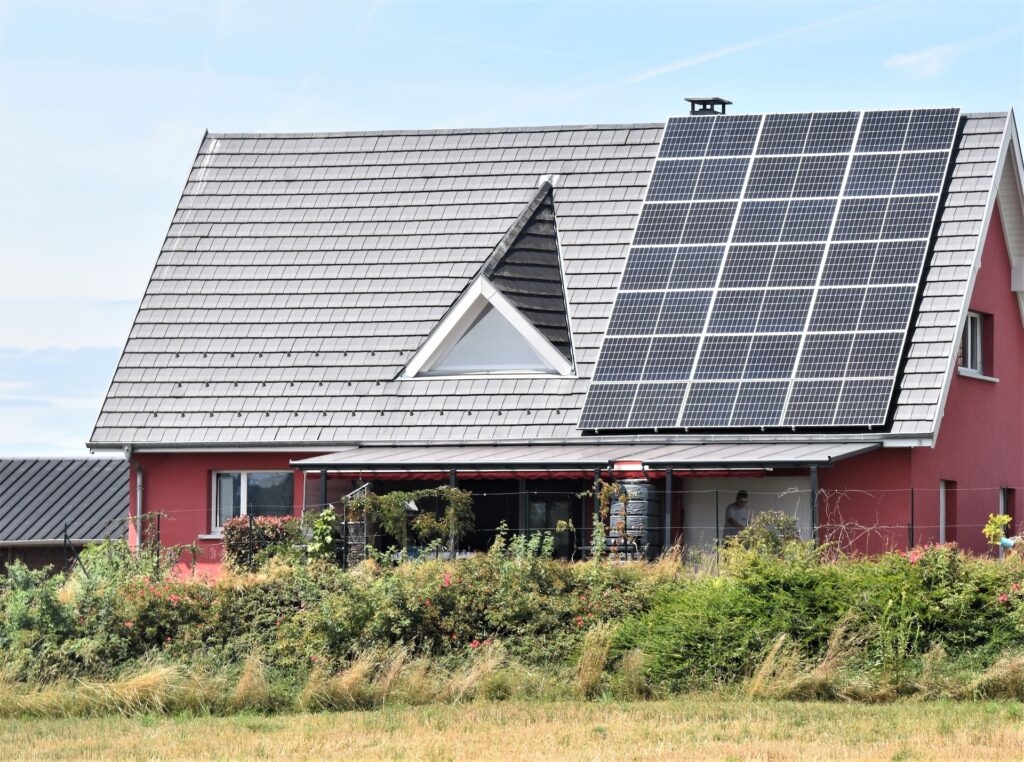
Compliance is a key aspect that is required throughout your ownership of an investment property. It’s the boring side of being a landlord, although it’s extremely important to make sure you stay out of prison. If you employ an agent, they should manage your compliance obligations for you. Although it’s important for you to understand your obligations, which the following compliance checklist sets out.
A COMPLIANCE CHECKLIST BEFORE A TENANCY STARTS
Before commencing a new tenancy, there are a number of statutory requirements that need to be satisfied. These statutory requirements are split into three categories: health and safety, environmental, and identity compliance checklists.
HEALTH AND SAFETY COMPLIANCE CHECKLIST
The law imposes certain obligations and constraints upon landlords when renting property, the main one being safety. The following information is intended to offer you a summary to ensure the safety of all tenants, contractors, and visitors. The following is the health and safety compliance checklist.
Gas Safety (Installation and Use) Regulations 1998
It is a criminal offence to let a property with gas appliances, installations, and pipework that have not been checked by a registered engineer. You will need to provide the tenant with a compliant gas safety record before the tenancy commences. Any recommended remedial work should be carried out before the start of the tenancy. Subsequent gas safety tests should be carried out annually throughout the tenancy.
Electrical Equipment (Safety) Regulations 1994
1) Portable Appliance Testing
Any landlord supplying electrical equipment to a rented property must ensure that it is safe under the regulations. The landlord is responsible for providing an instruction booklet for each item of electrical equipment. All electrical appliances should be portable appliance tested (PAT) before the commencement of a tenancy.
2) Electrical Installation Condition Report (EICR)
Electrical reports are governed by the Electrical Safety Standards in the Private Rented Sector (England) Regulations 2020. It is mandatory for any rental property to have a current, satisfactory EICR. Tests must be carried out every 5 years, and the test must meet the 2018 edition of the IET Wiring Regulations (BS7671.2018). No new tenancy can start without the test undertaken and remedial work completed. The EICR must be provided to the tenant before the new tenancy starts. We advise commissioning an electrical check as soon as the decision is made to market the property.
The remedial works stated in the report are classified under the regulations in the following categories: Anything on an EICR that is deemed either C1 “danger present” or C2 “potentially dangerous”, must be rectified as soon as possible. If a FI “Further Investigation Required” is identified, the item must be investigated and, if required, rectified. With regard to a C3 “improvement recommended”, these are recommendations only.

No new tenancy can start with any outstanding C1, C2, or FI items on the EICR. In cases where remedial works are required, these should be carried out within 28 days of the inspection. A local housing authority can request a copy of an EICR report, and this must be provided within 7 days. Failure to comply could result in the local authority issuing a penalty notice against the landlord of up to £30,000.
3) Building Regulations Part P (Electrical Safety In Dwellings)
Any repairs, or maintenance that relate to ‘electrical installations’ must be completed by a ‘competent person’.
Legionella disease
The Health and Safety Executives have issued a new Code of Practice for assessing the risks of Legionella in residential property. Landlords should carry out a risk assessment of your property prior to any letting, especially if there are open water tanks, redundant pipes, cooling systems, or a swimming pool. Further information is available on the HSE website.
Building Regulations (Smoke Alarm) 1991
It is mandatory to fit mains-powered smoke alarms on each floor in residential buildings constructed after June 1992. A mains-powered alarm isn’t required in older properties, although it is mandatory to have at least one alarm installed on each floor. These alarms must be tested at the start of every new tenancy. If the smoke alarm is battery-operated, the batteries should be tested and fully functional at the start of the tenancy.
Wood and solid fuel burning appliances.
Landlords with fuel-burning appliances installed after October 2010 must comply with appropriate building regulations. Any such appliance must either have been installed by a HETAS-approved engineer, who can then self-certify. Furthermore, provide the specific building regulation consent for the installation. If these appliances are present, carbon monoxide detectors need to be installed in the room where the stove is located. Having a chimney swept every 12 months is best practice to maintain safety for solid fuel appliances.
ENVIROMENTAL COMPLIANCE CHECKLIST
Environmental compliance is becoming a big buzz word within the real estate industry, and residential lettings are no different.
Minimum Energy Efficiency Standards (MEES)
The Energy Efficiency (Private Rented Property) (England and Wales) Regulations 2015 are driving environmental standards. From April 1, 2018, properties with an energy efficiency rating of F or G on their EPC cannot be granted a new tenancy. This includes a renewal and a tenancy moving from a fixed term to a statutory periodic tenancy. Since April 1, 2020, all properties with an EPC rating of F or G have been classified as “unrentable”. In these situations, the landlord needs to make improvements to the property, get it to a rating of E, or log an exemption.
Under the rules’, landlords will be expected to contribute up to £3,500 (inc. VAT) per property to make energy efficiency improvements. If the cost to achieve an EPC E exceeds £3,500, landlords will be able to register a `high-cost’ exemption. This can be registered on the PRS Exemptions Register with three separate quotes as evidence of it being a higher cost. These regulations come with some fairly heavy fines for noncompliance. If the breach is for less than 3 months, it costs £2,000, rising to £4,000 if the breach has been going on for 3 months or more.

Further information is available on the government website.
IDENTITY COMPLIANCE CHECKS
Right to rent checks
Under the Immigration Act 2014, all landlords now have the legal responsibility to carry out a ‘Right to Rent’ check. This ensures that prospective tenants and other permitted adult occupiers have the right to live in the UK. This is done by gathering their passport and proof of address.
In addition, the Immigration Act 2016 introduces the obligation for landlords to evict any tenant whose time-limited right to rent has expired and not been renewed. The new rules have been introduced to facilitate this.
Rented property licence.
Licencing and/or planning permission requirements are uncommon when letting a normal residential property to one family. Although in certain parts of the country, local authorities do require every rented residential property to be licenced, As with other licencing schemes, local authorities can charge a fee for issuing a license. Furthermore, failure to comply with the licence conditions can lead to a penalty being imposed on a landlord. For example, Oxford City Centre introduced residential licencing in 2022. Make sure you check with your local authority to see if there are licencing requirements in place. The Fundamentals You Need To Know Before Marketing Your Property For Rent

LANDLORDS ON-GOING COMPLIANCE CHECKLIST
It’s the landlord’s responsibility to ensure that the property you are renting complies with the rules throughout the term of the tenancy.
Homes (Fitness for Human Habitation) Act 2019
In England, this Act now gives tenants the right to take direct legal action against their landlord if their property is “not fit for human habitation”. They can seek damages and request that the property be brought up to a good state of repair. The Act sets out what will be considered under this legislation. The main aspects are stability, freedom from damp, facilities for cooking food, water supply, drainage and sanitary conveniences, ventilation, and any of the 29 hazards covered in a Housing Health and Safety Rating Assessment. Landlords need to ensure their property is constantly in good repair. Furthermore, if any issues with heating, hot water, dampness, condensation, or ventilation are identified and remedied.
Compliance checklist for the lifecycle of your rental property
| Compliance | Check/Renew Timeline | Mandatory/Best Practice |
| Gas safety tests | Yearly | Mandatory |
| Smoke alarms | Yearly test | Best practice |
| CO2 alarms | Yealy test | Best practice |
| Chimney Sweeps | Yearly | Best practice |
| PAT testing | As advised, although normally yearly | Mandatory |
| EICR | 5 Yearly | Mandatory |
| Legionella | Once | Mandatory |
| EPC | 10 years | Mandatory |
| Local authority licence | As prescribed by the local authority | Mandatory |
| Right to rent | When a time-limited right to rent ends | Mandatory |
SUMMARY
This article’s goal is to provide landlords with a definitive compliance checklist of the requirements they have as landlords. It breaks down the obligations into what’s needed when initially letting the property and throughout the lifecycle of the tenancy.




